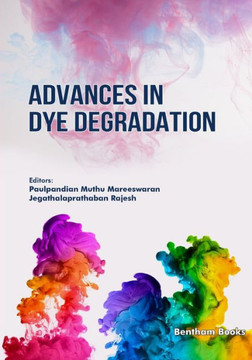
Springer
Biological Degradation of Wastes
Product Code:
9789401056274
ISBN13:
9789401056274
Condition:
New
$60.77
The cumulative effects of pollution have led, in recent years, to increased public concern, which is resulting in stricter legislation on the discharge of wastes in whatever state they are present: gaseous, liquid or solid. The treatment and disposal of wastes has become one of the most important problems facing mankind. This is a problem which will not disappear, and could even worsen, if it is not faced with resolution by all the main parties involved: consumers, governments, producers and scientists. Some wastes could be reused, producing some economic return which could pay for the waste-treatment process. In the best of cases, this could become an economically attractive recycling operation. However, in many situations, waste treatment is considered to be an unproductive process which entails additional costs to an otherwise productive operation. Methods for the removal and purification of wastes (including those considered to be 'toxic wastes', the most dreaded form of pollution), if developed at all, suffer from serious limitations. Two of these are the high energy input into the process and, after the contaminants have been removed, the lingering problem of what to do with them, as they will then exist as some kind of concentrate. The ideal solution is none other than a natural, biological process to degrade wastes. Fortunately, mankind is increasingly choosing that option, as exemplified by the general acceptance of the role of biotechnology in modern society.
| Author: A.M. Martin |
| Publisher: Springer |
| Publication Date: Aug 23, 2014 |
| Number of Pages: 419 pages |
| Language: English |
| Binding: Paperback |
| ISBN-10: 9401056277 |
| ISBN-13: 9789401056274 |

Biological Degradation of Wastes
$60.77
The cumulative effects of pollution have led, in recent years, to increased public concern, which is resulting in stricter legislation on the discharge of wastes in whatever state they are present: gaseous, liquid or solid. The treatment and disposal of wastes has become one of the most important problems facing mankind. This is a problem which will not disappear, and could even worsen, if it is not faced with resolution by all the main parties involved: consumers, governments, producers and scientists. Some wastes could be reused, producing some economic return which could pay for the waste-treatment process. In the best of cases, this could become an economically attractive recycling operation. However, in many situations, waste treatment is considered to be an unproductive process which entails additional costs to an otherwise productive operation. Methods for the removal and purification of wastes (including those considered to be 'toxic wastes', the most dreaded form of pollution), if developed at all, suffer from serious limitations. Two of these are the high energy input into the process and, after the contaminants have been removed, the lingering problem of what to do with them, as they will then exist as some kind of concentrate. The ideal solution is none other than a natural, biological process to degrade wastes. Fortunately, mankind is increasingly choosing that option, as exemplified by the general acceptance of the role of biotechnology in modern society.
| Author: A.M. Martin |
| Publisher: Springer |
| Publication Date: Aug 23, 2014 |
| Number of Pages: 419 pages |
| Language: English |
| Binding: Paperback |
| ISBN-10: 9401056277 |
| ISBN-13: 9789401056274 |





